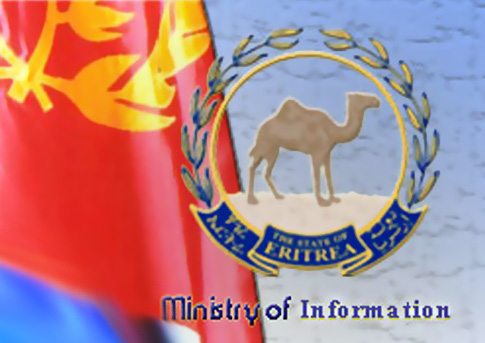General Dahir Adan Elmi, who has an officer in the Somalian army that invaded Ethiopia’s Qebri-dahar city in 1977, has become Chief of Staff of Somalia’s National Army as of March 2013.
The General talked with SabahiOnline about the Somali army’s ties with foreign armies and its plans to fight Al-Shabaab, as well as regarding the African Union Mission in Somalia (AMISOM), Turkey, the United States and others.
Question: What is the current state of the Somali military after more than two decades of civil war and chaos?
General Dahir Adan Elmi: The military has been greatly affected by the destruction that took place in the country.We are trying to revive it, but it is going to need a lot of time and effort. We have done a lot so far even though we are not where we would like to be, which is to complete the army in every way such as in equipment, their number and funding.

Question: What can you tell us about the military’s equipment?
General Dahir Adan Elmi: We have good equipment to start with, but we do not have all the equipment an army needs such as heavy weapons including tanks, planes, ships and other equipment made for the military. However, we are optimistic that we will get there, God willing.
Question: Is the international support the military receives adequate? And which countries do you receive assistance from?
General Dahir Adan Elmi: We get a lot of assistance, but we still need more support. We get assistance with military salaries, weapons and training. Countries that support us include [members of] the African Union, whose troops are with us, and European Union, the United States, Turkey and other countries that are allies of Somalia.
Question: What is the government doing to increase and improve military training?
General Dahir Adan Elmi: We had a recent success when for the first time the Somali Ministry of Defence held military training taught by Somali instructors inside the country for units that joined the military. We have also prepared [special units of] military commandos whose training is ongoing at the Jazeera Military Training Camp.
We also hope to continue increasing the knowledge and quality of the Somali army until it reaches the highest level. On top of that, we have the support of the country’s leaders and the collaboration of other countries that support us.
Question: Tell us about the military’s security operations aimed at restoring peace and fighting al-Shabaab?
General Dahir Adan Elmi: The Somali army in collaboration with AMISOM have removed al-Shabaab from many areas of the country. That battle is still ongoing and it will not stop until the enemy is [eliminated completely]. I think it is unfortunate for a Somali person to become an enemy of his country. I never thought we would be fighting against Somali people.
Question: What is your plan for retaking the regions that are still under al-Shabaab control
General Dahir Adan Elmi: The plan of the military and that of the government is to remove al-Shabaab from the areas they control now so that they can be stopped from inflicting constant abuses on the people that live under the control of the group. That is our sworn duty and we will fulfil it, God willing.
Question: How do you plan to stabilise and secure the areas after you liberate them from al-Shabaab so that residents can live in peace?
General Dahir Adan Elmi: The stabilisation plan is the biggest task we want to complete and we have started implementing it in the areas where we have removed the enemy. Nevertheless, we are thinking about how we can expand that and we are working on it.
Question: There was recently an American drone that killed a senior al-Shabaab official. What is your reaction to that?
General Dahir Adan Elmi: We welcome anyone that is fighting against al-Shabaab because they are the ones who are against governance and peace in this country. They want this country to be a safe-haven for criminals who have fled their own countries and that is something we cannot condone.
Question: Recently people have been complaining about problems they encounter from men dressed in military uniforms manning checkpoints on certain roads. What do you say about that issue?
General Dahir Adan Elmi: That issue exists, but it is not exactly as it is being portrayed. Military uniforms are sold [illegally] in the markets. If any person who is dressed like a soldier causes problems, it cannot be blamed on the military. However, whether the person is a member of the military forces or not, anyone who harms the public is an enemy and we will fight him because that person is worse than al-Shabaab.
Question: Some say the military forces are not organised and lack unit names and numbers. Is there some truth to that?
General Dahir Adan Elmi: That is one of the things we [military leaders] have focused on since we were appointed to this post. We have created numbered [units] for the army. Now we are working to make sure that the soldiers’ name and unit are placed on all uniforms. Some of the other things we have succeeded in doing include taking a picture of and fingerprinting each soldier who recently finished training and was given weapons so that we can track them if a soldier deserts with the weapon.
Question: How much is the salary of the soldiers and is it enough?
General Dahir Adan Elmi: On the salary issue, the Somali government increased the Somali military budget for the first time this past year. Each soldier got a raise equivalent to the same amount they used to get before, which was $100 and $30 for food. Now they get $200 in salary and $60 for food and they receive it each month. In addition to that, the American government gives extra money to the Somali military once every few months.
Question: Does the army have a separate hospital where any soldier who gets injured or gets sick can be treated?
General Dahir Adan Elmi: There are some hospitals that have a special agreement with the government where the injured soldiers are admitted, but there is no hospital that is strictly for the armed forces. There is a hospital that used to belong to the military, but it needs funding to operate. We are waiting for a time when the government can afford to do that.
**********





